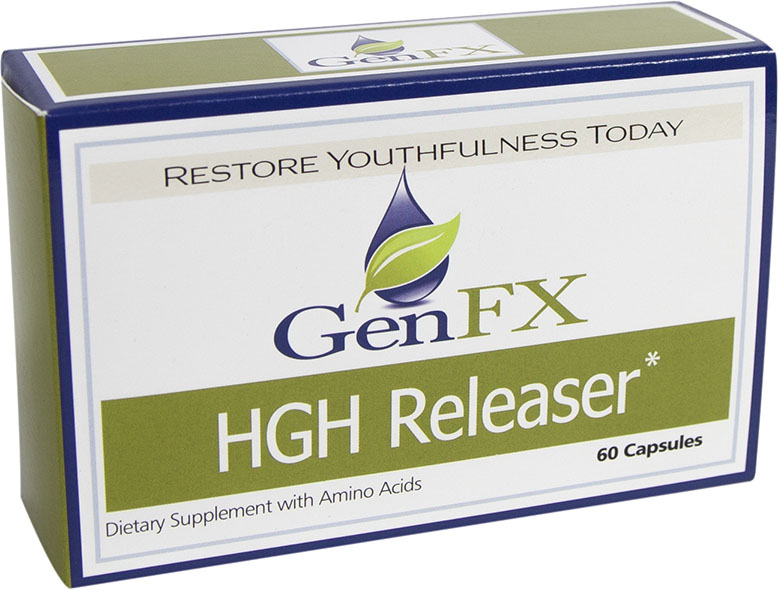Most guys don’t think about their hormone levels until something feels off. If you’re feeling run down, not quite as strong or energized as you used to be, or your workouts aren’t delivering the same results, low human growth hormone might be the culprit.
Human growth hormone (HGH) is a vital hormone that keeps men feeling youthful, strong, and mentally sharp. As we age, however, our natural production takes a nosedive, often earlier than expected.
Low HGH can sneak up on you, affecting everything from energy and muscle mass to fat storage and recovery time. It can even impact your libido. Many guys experience these changes and chalk it up to the inevitability of aging without realizing that low HGH is the cause.
The good news is that you aren’t powerless against it. By recognizing the signs and making some simple lifestyle adjustments, you can manage low HGH and start feeling like your younger, more vibrant self.
This blog explores the ins and outs of low HGH – what it is, why it happens, and how you can fight back to reclaim your energy and vitality.
Are you ready to regain your mojo? Keep reading to discover what you can do to keep your HGH levels in check.
What Happens When HGH Levels Drop?
A dip in HGH levels can have a domino effect on various aspects of men’s health. It’s easy to dismiss feeling tired or noticing a little extra weight as “just getting older,” but the real issue could be a drop in HGH in some cases.
Unfortunately, it isn’t talked about enough. So, let’s discuss what happens when your HGH levels decline. If any of these sound familiar, you’re not alone.
Energy and Recovery
Low HGH can mess with your sleep patterns, taking a significant toll on your energy levels. When it’s in short supply, you may find yourself running on empty even after a decent night’s sleep. You might notice it’s harder to shake off that mid-afternoon slump, no matter how much coffee you drink.
HGH is responsible for muscle repair and recovery, but when your levels drop, your body struggles to bounce back as quickly after workouts. When you’re feeling sore days after what used to be a routine workout, it can be challenging to stay consistent with your fitness regimen.

Muscle and Fat
Low HGH can also make it more difficult to build and maintain muscle. No matter how many reps you pump out, low HGH can impede your strength and muscle gains. Maintaining muscle is more than vanity; it’s crucial for overall health, mobility, and metabolism.
Speaking of metabolism, low HGH might be to blame for that extra cushion around your midsection. HGH helps regulate fat distribution, but when it declines, your body stores more fat – even if you’re watching what you eat and regularly hitting the gym.
Low Libido and Sexual Performance
Low HGH could be a factor if your sex drive has been lower than usual lately. HGH and testosterone are closely linked, and a dip in HGH can contribute to issues with libido and sexual performance.
Whether you’re not feeling as “in the mood” as you used to or you’re experiencing other performance-related problems, it might be time to explore what’s going on with your hormone levels.
Mood and Cognitive Function
Low HGH messes with the mind as much as the body, leaving you feeling mentally sluggish, irritable, or struggling to focus. Many guys with low HGH also experience mood swings and memory difficulties.
While you might not notice it immediately, the signs of low HGH can creep in and start affecting your daily life.
The Long-Term Impact of Low HGH Levels for Men
Ignoring low HGH levels is like neglecting your car’s oil change; eventually, things will break down, leading to a cascade of issues that are more than just a minor inconvenience. Untreated low HGH can impact your ability to feel good today and in the future.
In addition to muscle loss and increased body fat, low HGH over time can result in bone density issues, increased fracture risk, and a higher risk of cardiovascular issues.
You may also experience accelerated aging (internally and externally) and cognitive function and mood disorders, making you feel less like yourself and more like a “grumpy old man.”
Low HGH can compound and become more severe as time goes on, adversely impacting your libido and turning those romantic evenings into less-than-ideal PG-13 nights. Don’t let low HGH slow you down; take action and invest in your future health.
How to Know if You Have Low HGH
If you’re starting to wonder if you might be dealing with low HGH but are curious how to be sure, there are a few practical steps you can take to get a clearer picture.
No, there’s no magic mirror to check your hormone levels, but by reflecting on your daily life, you may find some answers.
Check in with your body. Are you feeling more tired than usual, dragging through the day without the energy you once had? Are you noticing stubborn belly fat creeping in? Are you struggling to build muscle? Or are you just not hitting your stride anymore? Keep track of any familiar signs; this will help you see patterns over time.
Pay attention to lifestyle factors. Your diet, sleep quality, and stress levels can all impact your body’s natural HGH production. If you’re burning the candle at both ends and eating whatever’s around, it might not just be a hormone issue but a lifestyle one.
Talk to your doctor. If your self-assessment raises any red flags, it is advisable to consult your healthcare provider. They can run blood tests to rule out other possible causes of your symptoms. It’s better to check your HGH levels than to brush it off as the price of getting older.
During diagnosis, a medical professional will run blood tests and discuss your symptoms and any lifestyle factors affecting your overall health. If you pursue HGH testing, you can expect the processes to measure hormone levels to be simple and non-invasive.
Common Causes of Low HGH in Men
Low HGH can be an unwelcome surprise, but understanding the potential causes helps you tackle the issue head-on.
Here are some of the most common reasons connected with this hormonal dip.
Age
Age is an inevitable factor in low HGH levels. As the years roll on, your body slows its HGH production. By the time you hit your 30s, declining HGH levels are as natural as finding a new gray hair or needing reading glasses for the first time.
Stress
Stress is the sneaky beast that wreaks havoc on your body and HGH levels. Elevated cortisol levels (often dubbed the stress hormone) can interfere with HGH production. When you’re constantly in fight-or-flight mode, it can lead to lower HGH. Find healthy ways to manage stress, whether from work pressures or life’s demands.
Sedentary Lifestyle
Lack of physical activity can contribute to low HGH levels. If your idea of exercise is lifting the remote control, it might be time to get off the couch and move. Regular exercise (especially high-intensity workouts) boosts your natural HGH production. You don’t have to run a marathon; even a brisk walk can make a difference.
Poor Sleep Habits
Quality sleep is vital for HGH production. If you’re pulling all-nighters for work or the latest streaming binge, it can leave you feeling like a zombie the next day. Furthermore, your body may struggle to produce enough HGH. Stop hitting snooze on your health and prioritize sleep.
Poor Nutrition
Your diet can hinder your body’s ability to produce HGH. To support your hormone health, focus on incorporating lean proteins, whole foods, and healthy fats. Also, remember to consume plenty of fruits and veggies to slow down HGH decline.
Medical Conditions
Certain medical conditions can directly impact your HGH production. For example, disorders of the pituitary gland, which produces this vital hormone, can contribute to lower HGH levels.
Once you recognize these common causes, you can proactively maintain healthy HGH levels and feel like your best self.
The Importance of Early Intervention
Don’t brush off the signs of low HGH. Your health is worth prioritizing. The sooner you tackle the issue, the easier it is to regain energy, boost strength, and improve overall well-being.
Catching the problem of declining HGH early can be a game-changer. Think of it like spotting a flat tire before hitting the road. Early intervention can help you avoid a rough ride later on.

Take Control of Low HGH Levels Now, Feel Better Later
Low HGH isn’t a life sentence. Addressing issues like fatigue and muscle loss sooner rather than later makes managing low HGH possible. By recognizing the signs early, you can take proactive steps to feel like your younger self again.
While lifestyle changes like exercise, diet, and stress management can (and do!) work wonders, consider adding natural HGH releasers like GenFX to your routine. These supplements encourage your body to naturally increase HGH production, giving you an extra boost to reclaim your energy and strength.
You don’t have to settle for feeling worn out. Take control of your health and embrace a more vibrant, energized life.
